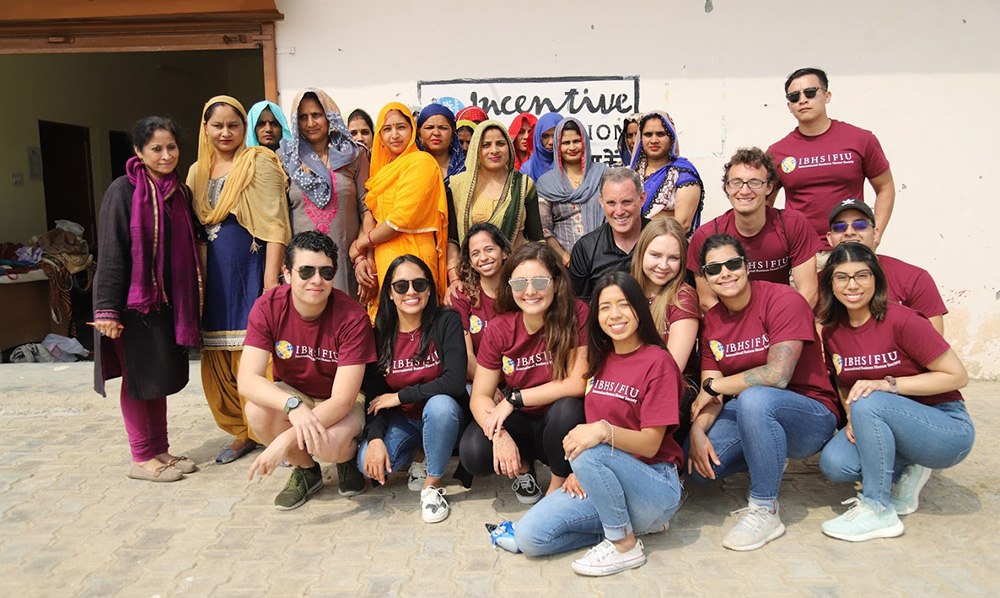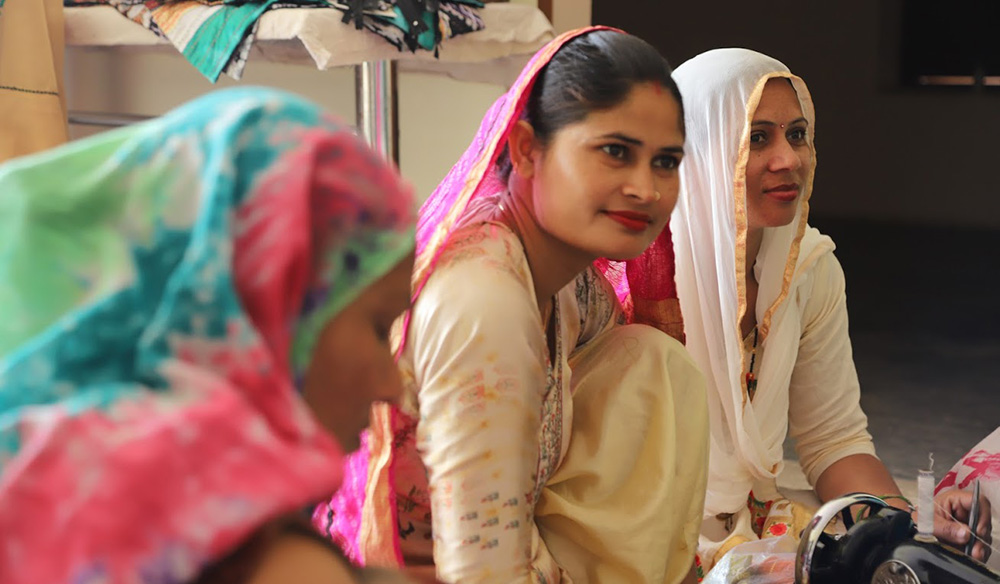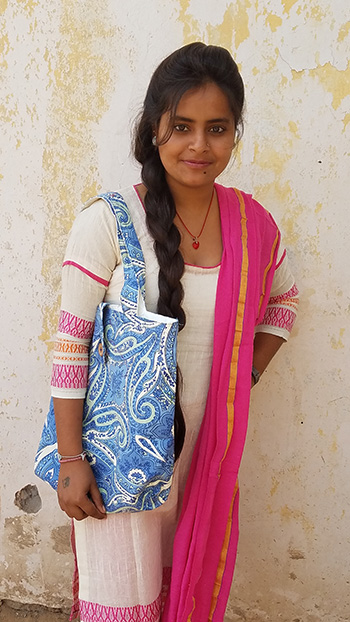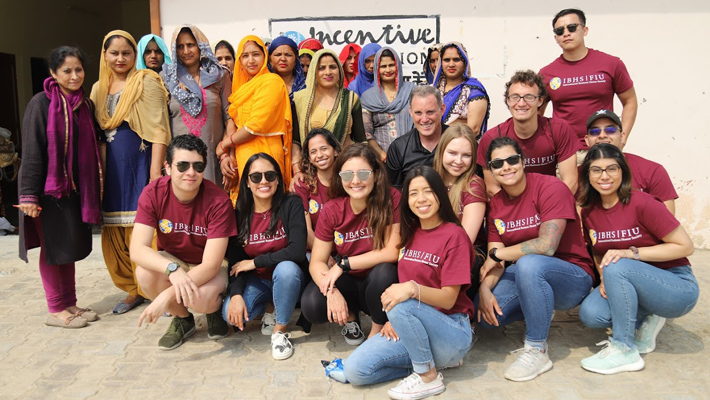
Thanks to an innovative microenterprise initiative spearheaded by FIU business students, an elementary school in a poor Indian village near New Delhi now has drinking water and flush toilets. The donation of the new water pump was made possible from the sale of fashionable tote bags crafted from repurposed silk sari fabric. The sale of the eco-friendly handicrafts and the water pump donation are just the latest chapter in a six-year-old project aimed at boosting livelihoods in India, while giving FIU students a chance to apply their business skills in a real world setting.
The Bandhwari Women’s Project was launched 2016 with the aim of helping a community of poor and marginalized women establish a thriving social enterprise. Under the project – the brainchild of international business teaching professor David Wernick – student members of FIU’s International Business Honor Society (IBHS) travel to India each spring break for a week of service and business boot camp. They provide the women with designs and fabrics and guide them in the production of fashion accessories – tote bags, purses, yoga bags — that blend vibrant Indian textiles and modern design chic. The products are displayed on a Instagram account (instagram.com/ibhs_bandhwari) thanks to IBHS marketing director Isabella Palmese, with colorful photos of both the handmade products and the women who made them. The products are sold in the United States, with most of the proceeds returned to the village in the form of donations. The students also spend time teaching the women basic business skills and tutoring the children of the village in English and math.

As the nine IBHS student participants basked in the glow of their successful February 2020 international trip, a new worry emerged that threatened their fledging enterprise: COVID-19. But thanks to quick thinking and close collaboration between Wernick, the group’s faculty advisor, and the Incentive Foundation, their local partner, the IBHS students were able to continue the project’s momentum without missing a beat.
Wernick pitched Incentive Foundation Managing Director Anup Nair on the idea of creating “virtual internships” for IBHS students that wanted to work on the project over the summer. Nair embraced the idea, which received financial support from FIU CIBER. Ultimately, three IBHS students were awarded scholarships. Among them was IBHS E-board Vice-President Camila Gutierrez. Gutierrez, a junior from Bolivia who is double majoring in international business and marketing, was tasked with creating new sales strategies and marketing content for the initiative.

“At first, working remote, and factors such as time differences were hard for me,” said Gutierrez, who participated in weekly Zoom meetings with Wernick, Nair, and the other interns from her home in Bolivia. “But I have learned and received a good overview of what happens in a business, as well as learning to be resourceful and resilient.”
Kristina Khudiakova, IBHS E-board president and FIU junior, was also given the opportunity to participate in a remote internship from her home in Russia. Her roles included helping to develop the digital marketing for the project and a website for the Incentive Foundation.
Brianna Nitti, a junior majoring in international business, was the third student intern. Nitti spent her summer developing a wholesale strategy for the Bandhwari products and devising a plan for an innovative sales competition to generate new revenue. The competition, which was launched in September and will run through the end of January, aims to incentivize FIU business students to sell Bandhwari products, including face masks, scrunchies, and handbags that range in price from $5 to $45. To keep track of sales, IBHS has generated an electronic ordering platform with personal ID codes for sellers. The winner will be awarded a spot on the next trip to India.
The Bandhwari Women’s project received another boost in September when WTDC, a Miami-based global logistics firm, announced that would award a $1,000 scholarship to an FIU business student to participate in next year’s India trip. The scholarship was awarded by Sean P. Gazitua (BBA ’04), CEO of WTDC, as part of an essay competition, which has become an annual event.
Reflecting on the events of the past year, Wernick commented: “COVID-19 certainly threw us a curve ball. But thanks to the creativity, hard work, and commitment of my students, and the support of the College of Business, our partners and donors, we were able to make great strides. What a joy it is to be part of a project that touches so many lives.”





